Dennis: Sometimes I just have to take on board what other people say
Australian on world title, moving to Bahrain-Merida and the slights that made his career
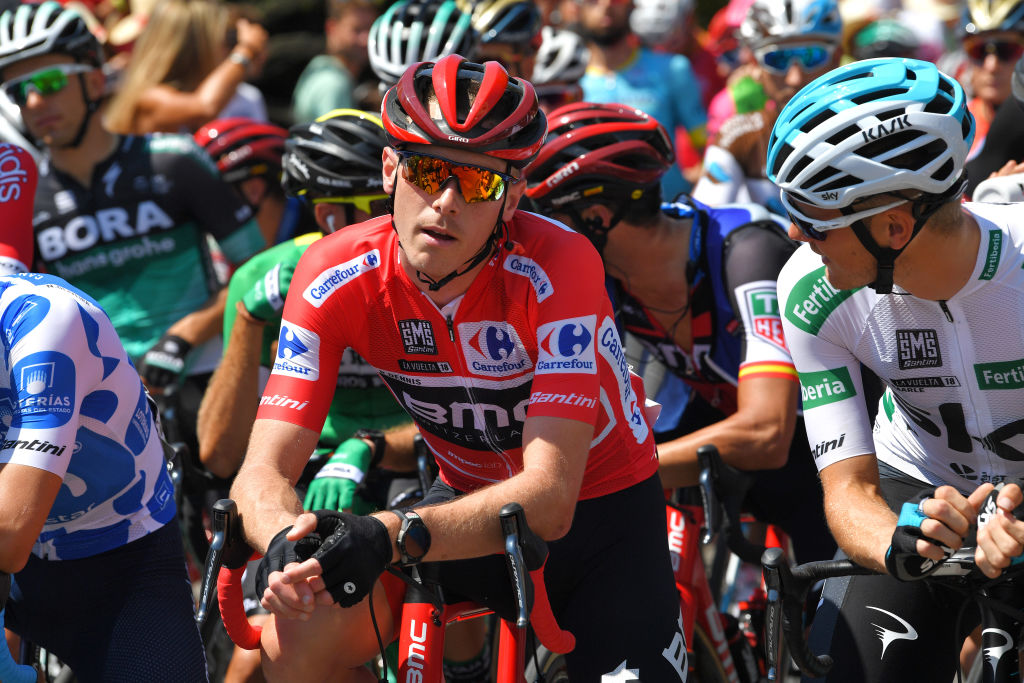
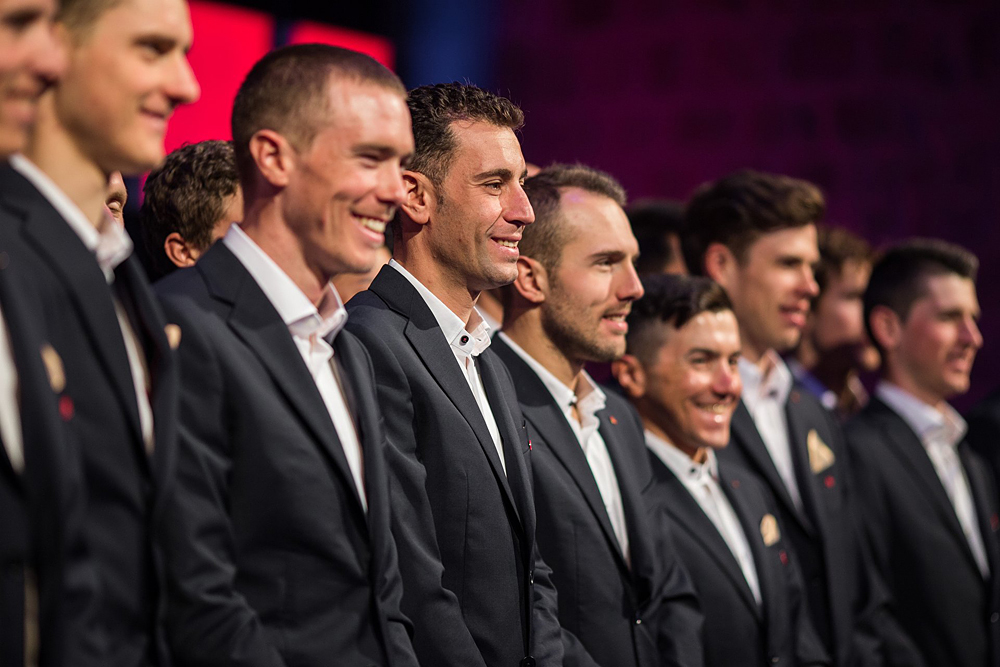
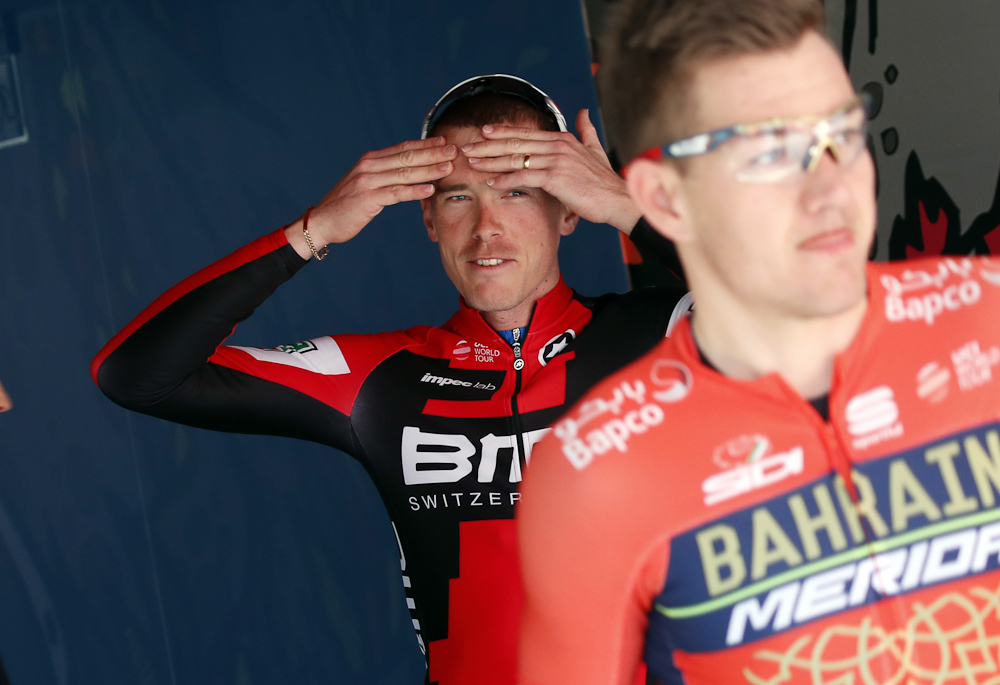
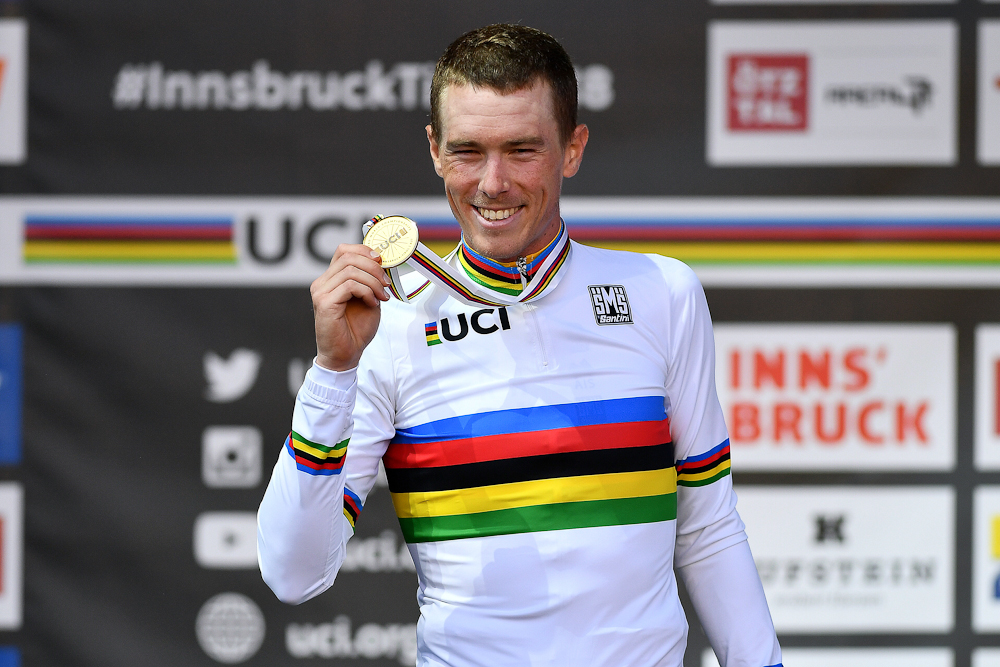
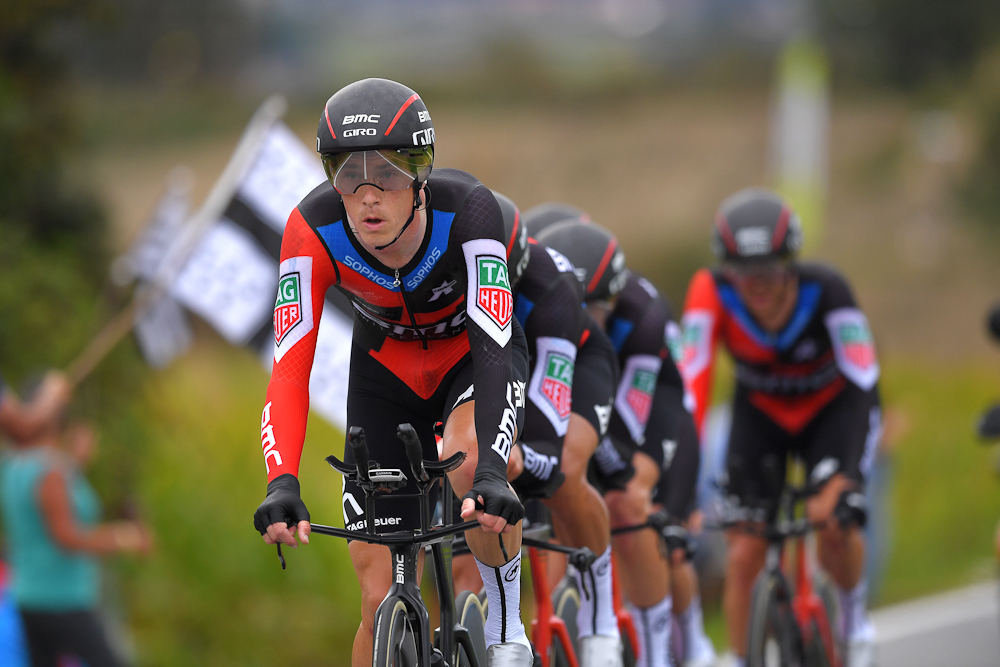
Rohan Dennis was in the yellow jersey and the big ring when Richie Porte’s tempo shifted abruptly from allegro to presto. A little over two kilometres separated him from the summit of Valmorel and the finish of stage 5 of the 2013 Critérium du Dauphiné, and it was no surprise to see the neo-professional swing off to the left-hand side of the road.
Yet even as the race’s leading players readied themselves in Porte’s slipstream – Chris Froome, Alberto Contador and Alejandro Valverde were all in the Alps to run through the scales ahead of the main event in July – Dennis was of no mind to go quietly. Still grinding his big ring, he hauled himself from the saddle to clasp the wheel of the passing Bart De Clerq, the last man in the leading group.
In time, the ensemble of Tour de France contenders would hit notes that Dennis simply could not reach, but the neo-professional continued to trash a mammoth gear all the way to the line, labouring under the misapprehension that the road flattened out nearer the top.
“I put it in the big ring and thought I could suffer through a kilometre before it went flat, but it didn’t. But once you go big, if you change down a gear, you’re dead,” Dennis tells Cyclingnews, wincing at the memory. “Everybody was giving me a bit of stick, asking what the hell I was doing pushing 60rpm cadence. Well, I was a neo-pro and these guys were winning the Tour de France. I needed to do something.”
Dennis would reach the finish 59 seconds down on Froome and surrender the yellow jersey he had claimed after the previous day’s time trial, but for a 23-year-old, it was quite a calling card. His talent was raw, but his character obvious. Dennis survived three more stages to complete the race in 8th place overall, seemingly singling himself out as a future Grand Tour contender in the process.
On the back of that Dauphiné display, however, the date with destiny was brought forward, and Dennis would endure a chastening Tour debut. “That Dauphiné was a big confidence boost but I got a reality check two weeks later when I started the Tour,” Dennis says. “It was just a massive hit straightaway – ‘Good luck, Rohan. Well done. You thought you were good, this is what’s really good.’”
It was only in the latter part of his time at BMC Racing that Dennis returned to the idea of paring down and making a concerted attempt to focus on the Grand Tours, an experiment that will continue in 2019, his debut season at new team Bahrain-Merida. While Dennis will ride the Tour de France in support of Vincenzo Nibali rather than in pursuit of his own overall placing, his immediate role and his longer-term ambition are not mutually exclusive.
Get The Leadout Newsletter
The latest race content, interviews, features, reviews and expert buying guides, direct to your inbox!
“I’m coming to a team that realistically is Nibali’s team, and I’m not going to start barking orders. I’ve got try to prove my worth in some ways,” Dennis says, pausing a beat for comic effect and then adding: “Before I start barking orders.”
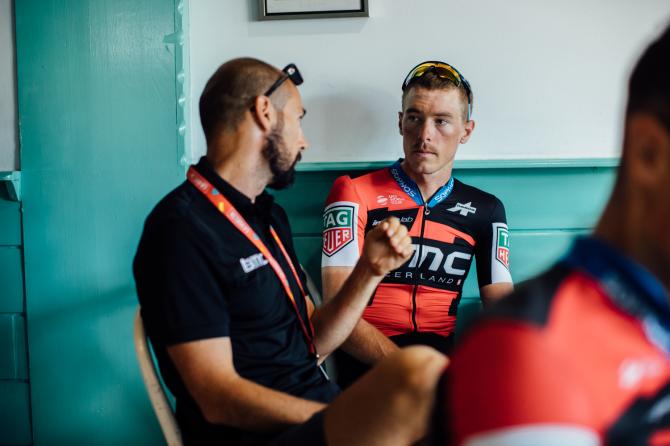
Dennis and Daniel Green discuss the Vuelta time trial route over coffee.
'Thanks for trying to screw me over because it made me better'
Dennis is only too aware that a reputation for plain-speaking made his road to the WorldTour more convoluted than it should have been for an athlete of his gifts. After claiming team pursuit gold as part of the Australian quartet at the 2010 Track Worlds, he signed a contract with the planned Pegasus team for 2011, only for the nascent squad to collapse ahead of its maiden campaign. Dennis found a home for 2011 at the Rabobank Continental squad, but while his participation in the team pursuit at the London Olympics might have excused the lack of WorldTour suitors in 2012, it was more difficult to explain why Garmin were the only top-level team to make him a firm offer the following year.
Dennis’ track career yielded two rainbow jerseys and an Olympic silver medal in the team pursuit. In 2012, he placed 5th at the Tour Down Under and his final act as an under-23 rider was to take silver in the Worlds time trial, but nebulous murmurings about issues of character seemed to blind many to his obvious talent.
“There were things going around at the time from sources that shouldn’t be trusted. People were saying, ‘Stay clear of Rohan Dennis, he’s a trouble maker. Don’t waste your time on him.’ And this was from people who should have been looking after me,” Dennis says.
“A person who has helped me through my career was told not to go near me. There was a lot of stuff going on behind the scenes that halted my progression to becoming a pro. But it made me in some ways the rider I am now. I’m not going to name anybody, but I’d say: ‘Thanks for trying to screw me over because it made me better.’”
Only Allan Peiper, then a sports director at Garmin, seemed inured to the whispers, or at least convinced that he could nudge Dennis’ forceful personality in the right direction.
“He was the one guy who gave me a leg up and a gig. He was the guy who pushed [Jonathan] Vaughters to sign me. Without him, it would have been a lot harder. I’ve thanked him for that and he’s said, ‘Ah, you would have been picked up anyway,’” Dennis says, though he is not convinced.
When Peiper left for BMC at the start of 2014, few doubted that Dennis would soon follow him, even if the manner – a novel mid-season transfer – was something of a surprise. The move proved a fruitful one. That September, Dennis was part of BMC’s gold-medal-winning effort at the Worlds team time trial. In 2015, he set the hour record Grenchen. That July, he claimed the opening yellow jersey of the Tour de France after scorching to victory in the opening day time trial in a sweltering Utrecht.
By that point, Dennis was established as one of the foremost time triallists in the peloton, even if he would endure repeated heartbreak in the discipline’s set-piece occasions. He lined out among the favourites for gold at the Richmond Worlds in 2015, only for his challenge to be unravelled by a puncture. At the Rio 2016 Olympics, a broken aero bar saw him slip from a likely silver medal to 5th place. A crash ruined his chances in Bergen in 2017. “That one was my fault,” Dennis says. “But Rio hurt.”
Come the 2018 Worlds in Innsbruck, Dennis was all but bracing himself for a mishap even as he approached the race in something akin to the form of his life. A brace of time trial wins at the Vuelta a España made him the prohibitive favourite for the rainbow jersey, but the spectres of Worlds past were never far from his shoulder.
“A mate said good luck to me beforehand and I said, ‘We’ll see, it’s Worlds,” says Dennis. “Everyone always says it’s good being the favourite but it’s not, it’s the absolute worst. I tried to ignore that. I don’t look at myself as the favourite. I never do in any time trial. I don’t know if that’s a lack of confidence or just being realistic. At the Vuelta prologue, when I saw Kwiatkowski’s time, I just thought ‘shit.’ I knew he was going to be good, but I didn’t know he was going to be that good, and I was a little bit stressed.”
Rather than draw confidence from his condition in Austria, Dennis fretted about the quality of the men he was facing, most notably defending champion Tom Dumoulin. “I always look at what other people can do and how I can beat them, rather than how I can make sure they don’t beat me,” Dennis explains. In the event, he had 1:21 to spare on Dumoulin, but amid all the congratulations on crossing the line, Dennis was loath to celebrate until the result was certain.
“If I’d won in 2015, I’d have enjoyed it, but I appreciate being world champion now all the more because I had to fight for it so much. I’m glad I had all that crap happen. Though not at the time – it was really pissing me off.”
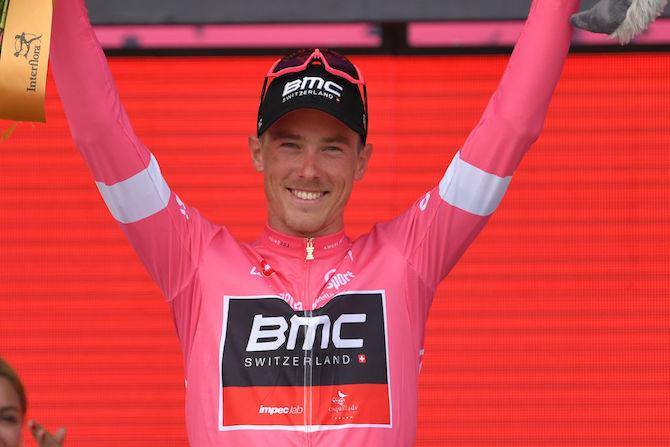
'I've just learned that you can't do stupid things'
A newly-installed world time trial champion is invariably asked if he has designs on one day challenging at a Grand Tour, but by the time Dennis claimed the title in Innsbruck, the question was moot – he was already two seasons into a four-year project to explore his potential as a stage race rider. Unlike rouleurs like Dumoulin and Bradley Wiggins, who transformed themselves into Grand Tour contenders almost by stealth, Dennis has been refreshingly open about his aspirations since the aftermath of the Rio Olympics.
“I’ve been told that I shouldn’t have opened my mouth and just kept it quiet from word go,” Dennis says. “But there was going to be a lot of questions anyway about me all of sudden getting better at GC, so I just thought I’d be open about it. I want to try to attack this. This is my timeline and if it doesn’t work, it doesn’t work. That’s my approach to it. I didn’t feel like playing games.”
Dennis’ first innings as a GC man saw him out for a duck, as a crash in the opening days of the 2017 Giro forced him to abandon the race before it had even reached the Italian mainland, but the overarching objective remained in place. He returned to the corsa rosa 12 months later as BMC’s leader for the general classification, despite a previous best of 84th overall in a Grand Tour.
In Italy last May, Dennis received a decent grounding in the demands of competing at a Grand Tour. After losing out to Dumoulin the opening time trial in Jerusalem, Dennis snatched bonus seconds to take the pink jersey the next day. As expected, he conceded the jersey on the first summit finish at Mount Etna but limited his losses diligently thereafter to remain within striking distance of his stated goal, a place in the top 10. His measured climbing and smooth cadence were in stark contrast with the over-geared and overly-emotive style of the 2013 Dauphiné. The transition was the result of harsh lessons learned.
“I’d blown up so many times. Something would annoy me, and I’d go hard, hard, hard and then blow up. ‘Ah, what the hell, I felt so good.’ I was wasting all my energy for nothing,” Dennis says. “Over the years, I’ve just learned that you can’t do stupid things. You have to be more calculated.
“Even in time trials, I went through a period where I didn’t want to look at my power, I wanted to go by feel. After a while I realised that was really stupid for me because I didn’t know exactly what I was doing. It was a learning curve but one that put me in the right direction.”
Victory in the stage 16 time trial moved Dennis up to 6th place overall and within touching distance of his stated aim, a place in the top 10 in Rome. In any other year, he might have held on, but he was one of many to suffer on absurd stage over the Finestre, where Froome produced the most improbable of comebacks and blew the race to pieces. That afternoon and again at Cervinia the following day, Dennis was far from the only rider in crisis management mode, and he treaded water as best he could to finish the Giro in 16th place overall.
“If it had been raced in what everybody calls the ‘boring’ WorldTour race way, maybe I wouldn’t have lost that time and would have had more energy for stage 20. But WorldTour races aren’t boring and things like that do happen,” Dennis says.
“I wasn’t prepared for that. What I was doing at the Giro was just trying to survive. And another thing was that I was just too heavy. I was 72 or 73kg, but I didn’t look at the weight too much this year because I was more worried about being strong and getting that power up to last four or five hours in a race.”
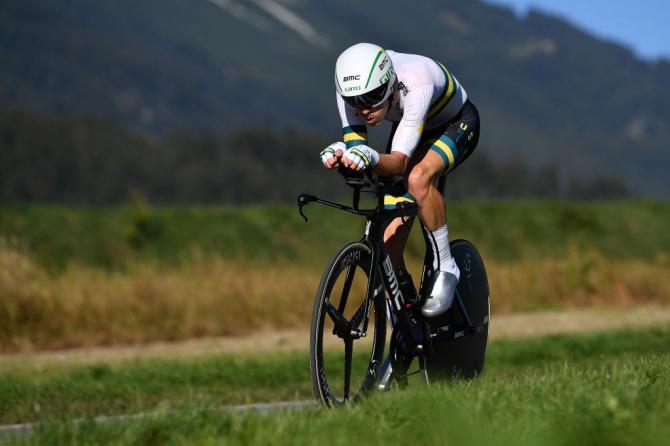
Dennis en route to the time trial world championship title in Innsbruck.
No interest from Mitchelton-Scott
Dennis is aware that some are unconvinced by his Grand Tour ambitions – he jokes about responding to some of the crueller cuts on social media – but it’s also worth noting that 16th overall in a Grand Tour at the age of 28 is a better result than either Wiggins or Geraint Thomas had achieved at the same age.
There was certainly no shortage of interest in Dennis’ services when BMC announced their withdrawal from team sponsorship earlier this year, though as was the case in 2012, it was notable that the lone WorldTour team from his home country was not among them. Mitchelton-Scott’s loaded roster already features the Yates brothers, Esteban Chaves and the emerging talent Jack Haig, but it still seems curious that they made no inquiries about an Australian world champion entering the prime years of his career.
“It’s hard to ride for a team that never offers you a contract,” Dennis says. “It’s as simple as that. It’s not off the radar for me. My manager has never spoken to me about going there, so as far as I know, nobody [from Mitchelton-Scott] has ever approached him and said they were interested. Obviously, it’s a lack of interest on their behalf for some reason. Maybe I speak up too much and they don’t like it. Sometimes you just don’t fit the mould. Maybe they think their mould is not for me. They may prove me wrong one day. It just is what it is.”
In any case, Dennis is confident that he has found a fitting home at Bahrain-Merida, though he initially had misgivings about joining what he had mistakenly believed to be an Italian-speaking team. “My languages are crap – even English sometimes, I struggle with,” Dennis jokes, but a conversation with general manager Brent Copeland was enough to assuage his concerns and he signed on the dotted line.
Dennis has been coached by Neal Henderson since he turned professional, and the working relationship will continue into 2019, with David Bailey – a fellow arrival from BMC – liaising on his training schedule on behalf of the team. Over the coming two years, Dennis will keep trying to shed kilos for the high mountains. And while he has an obvious debt to settle in the time trial at the Tokyo 2020 Olympics, he believes the tough parcours means that his Grand Tour project can continue unabated.
“That Tokyo time trial is very hilly so it’s actually almost a climbing time trial,” Dennis says. “I’m going to have to work on my climbing all through until then anyway, no matter what.”
To that end, Dennis now splits his time between Girona and Andorra, where he lives with his wife, the former professional rider Melissa Hoskins, and their new-born son. “If I want to do GC on a Grand Tour I have to climb more,” says Dennis, who is mindful, too, that a rider with such grand designs ultimately spends more time away than at home. “Your career is something that’s short-lived and you have to make the most of it. I’m just lucky that I’ve got somebody next to me who does understand that.”
Life as a rider, Dennis has found, is all about striking a balance. Over the years, the adrenaline that drove some of his early success has gradually given way to a more rational approach. His opinions are still frankly expressed but his positions, it seems, are sometimes more flexible than before.
After Dennis placed two seconds behind Dumoulin in the Jerusalem time trial at this year’s Giro, for instance, his BMC team wanted him to chase the bonus seconds to move into the pink jersey on stage 2. Dennis, however, felt that it wasn’t worth the hassle.
“I thought it was too much stress. I’d been in yellow and red before, and it’s just constant crap after the race,” Dennis says of the podium ceremonies and media duties of the overall leader. It took a quiet word after dinner from Jürgen Roelandts to convince Dennis. “They’d brought the bloody pink bike too... I didn’t know that.”
On the following afternoon’s stage to Tel Aviv, Dennis duly surged to claim the requisite three bonus seconds at the intermediate sprint. The pink bike had not been lugged to Israel in vain.
“I was wrong. It was quite a special thing to get the jersey in that way,” Dennis says. “Sometimes I just have to take on board what other people say and not be stuck to my ways. It helps sometimes.”

Barry Ryan was Head of Features at Cyclingnews. He has covered professional cycling since 2010, reporting from the Tour de France, Giro d’Italia and events from Argentina to Japan. His writing has appeared in The Independent, Procycling and Cycling Plus. He is the author of The Ascent: Sean Kelly, Stephen Roche and the Rise of Irish Cycling’s Golden Generation, published by Gill Books.